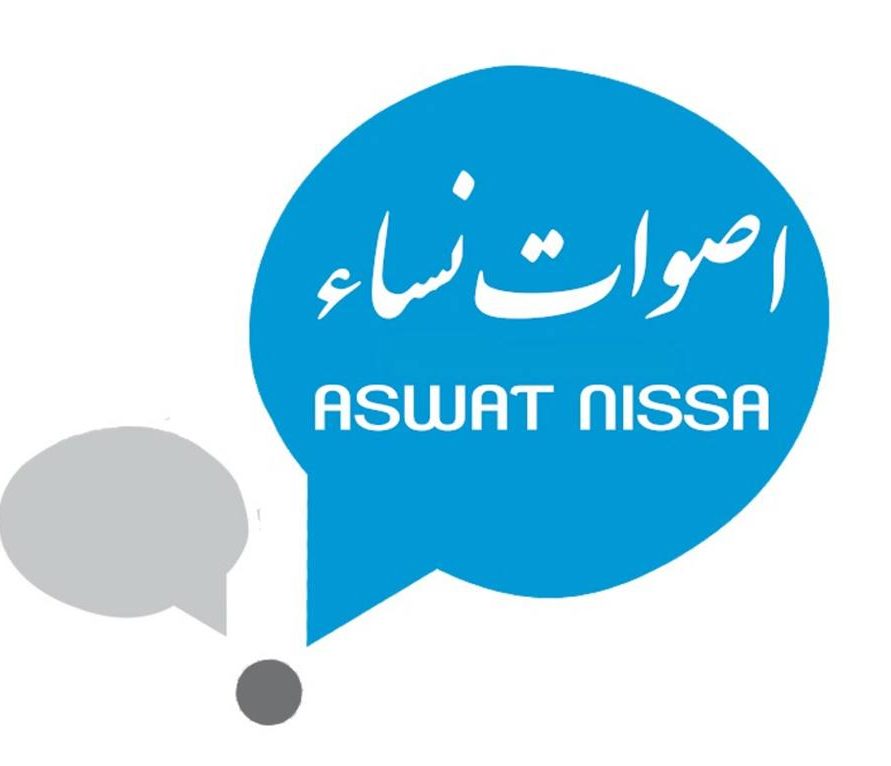Women’s Political Academy 2016
Women’s Political Academy 2016

The 2016 Edition of the Women’s Political Academy brought together 40 participants, divided into two groups. The candidates attended six training sessions throughout the year. The sessions aimed to strengthen women’s capacities and skills in order to prepare them for the 2017 municipal elections and to increase their awareness on daily struggles experienced by Tunisian women. Ultimately, women candidates should be capable of pleading for gender mainstreaming in their municipalities.
Six main topics were covered during the 2016 Women’s Political Academy:
- Leadership;
- Political Communication and Media Relations;
- Local Governance and Decentralization;
- Electoral Campaigning;
- Gender and Gender-sensitive Budgeting;
- Socioeconomic Rights and the Electoral Law; and
- Advocacy techniques.

Leadership
The leadership training aimed to strengthen women candidates’ confidence to encourage them to speak publicly and to voice their opinions in and outside their party.
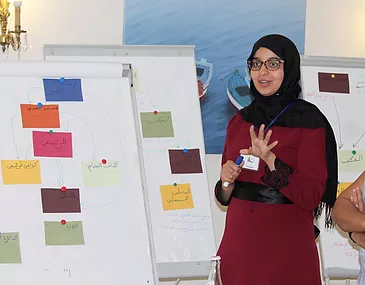
Political Communication and Media Relations
The training on political communication and media relations helped women candidates clarify their political message and better target their electorate. The training session also aimed to coach women to answer interview questions professionally during the course of their electoral campaign.
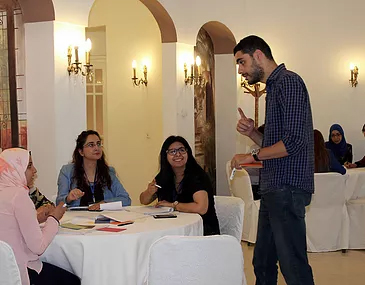
Local Governance and Decentralization
The training on local governance, decentralization, and territorial assessment allowed women candidates to understand the different mechanisms at play during municipal elections, as well as the importance of a municipal council and its associated challenges. The objective of the training was to help women include within their electoral proposals the principles entrenched in the Tunisian Constitution that relate to local power.
Electoral Campaigning
The training on electoral campaigning revolved around financing strategies, team management, and voter targeting. This knowledge will help women candidates better manage their electoral campaign and better target their audience.
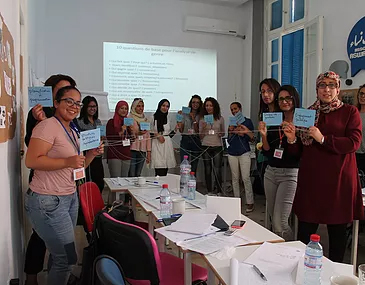
Gender and Gender-Sensitive Budgeting
The training on gender and gender-sensitive budgeting allowed women candidates to become more familiar with the concept of gender. Women also explored the different gender-sensitive tools of measurement, assessment, and budgeting. The goal of the training was to equip women with the necessary skills for gender-sensitive budgeting and to highlight its importance.
Socioeconomic Rights and the Electoral Law
The training on socioeconomic rights and the Electoral law aimed to inform the attendees of women’s social, economic, and cultural rights to foster their ability to advocate for a broader pursuit of those rights within their political party and their community.
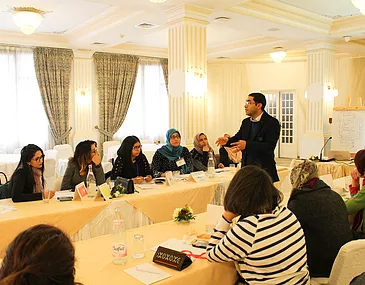
Advocacy techniques
The training on advocacy techniques reinforced the women’s skills to elaborate and implement an effective advocacy campaign. It enabled women to better understand the importance of advocacy. The training also led to the creation of a common advocacy campaign to fight violence perpetrated against women. Women became able to work collectively for common objectives, regardless of their respective political affiliation.
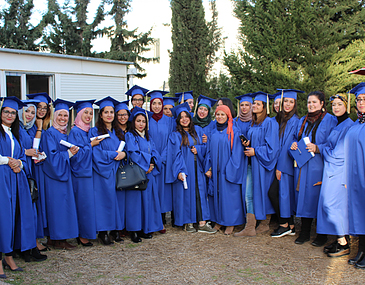
Graduation Ceremony
The graduation ceremony of the Women’s Political Academy 2016 edition celebrated the participants’ effort and engagement throughout the program. Many key political actors, as well as a representative from the Korean International Cooperation Agency (KOICA) and the NDI Tunisian program manager, Mr Daniel Dezainde, were present during the celebration. The event benefited from a broad media coverage from Al Wataniya, the national television, and from Nessma. After a long deliberation, Nawrez Ellafi, of the Al Watad Party, was designated valedictorian of the 2016 cohort.
